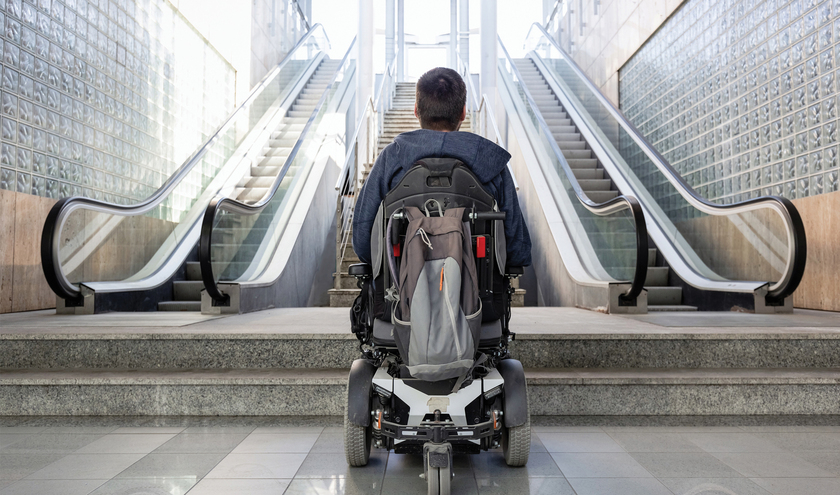This week a tempting offer landed in my inbox – a last-minute ticket to join colleagues at the Local Government Association (LGA) conference in Harrogate, later this month.
Making travel work for me takes some extra consideration. As a wheelchair user, I am thinking about the availability of accessible hotel rooms, ruling out no-go Airbnb options, considering if the favourite coffee haunts have rogue steps and worrying about the navigation of those very steep hills where I came a cropper in front of some very new, and very senior, colleagues back in 2015!
The reality is that I am disabled by my environment. Friends and colleagues are always unfailingly supportive, but the built environment and how we use it works best for able-bodied people and making it work for me takes significant planning that is draining and tiring
These obstacles are, of course, not unique to local government events. Every day I rely on my encyclopaedic knowledge of the (very few) accessible tube stations and best bus routes.
I remember the bars and restaurants to avoid because of their abundance of steps or lack of accessible toilet facilities. I always call ahead to check parking and I must be 20 minutes early for a train to navigate ramp assistance to have any hope of getting on.
I have worked in central and local government and, in my professional life, I have dealt with unreliable platform lifts at entrances, inaccessible kitchen spaces, heavy doors, broken assistive technology, meeting rooms that are too small and even conferences in buildings I have no way of getting into.
The reality is that I am disabled by my environment. Friends and colleagues are always unfailingly supportive, but the built environment and how we use it works best for able-bodied people and making it work for me takes significant planning that is draining and tiring.
It never ends and is not something many people can relate to and if I am honest, the build-up of all these extra daily considerations is a burden.
Joining Thurrock Council in my first local government role has brought into sharp focus what I already knew from my national roles alongside the sector – that local government is central to reducing this burden on disabled people in their communities.
In England, 17.7% of people are disabled and our role in shaping the place agenda is improving accessibility across the public sector, particularly via better integration across health and care.
The advent of changing places, the drive for more accessible parks and play areas and commissioning that considers the whole person are all examples of challenging the status quo.
As an employee, I wonder if councils, and those who lead them, have as sharp a focus on the impact of the inaccessibility baked-in to our society and on their employees as they do on their residents?
I often hear the cry that those in town halls and civic centres should reflect their community and I could not agree more.
In Thurrock, 16.7% of our residents are disabled, contrasted with 9.9% of my colleagues. These figures are, of course, reliant upon the confidence of the disabled community to declare, but demonstrate there is more to do.
If councils want to represent and reflect the disabled people in our communities, they must embed inclusion in all they do. In creating a workplace and a culture that works for everyone, we should not take our eye off the ball about the everyday things that can make colleagues' lives harder.
We have all started meetings with a chat about the weekend, but have you ever tried an accessibility check-in? Is there anything we need to do to make this meeting more accessible for everyone?
As public servants, we must become champions of an approach that considers all disability, visible or invisible and provides a culture where the needs of disabled colleagues are not achieved by lengthy adjustment processes or tick-box exercises but considered as a matter of course.
If everyone in your organisation could not use stairs, they would not be a part of any of your buildings.
In the end, I can't make my diary work to be at the LGA conference in Harrogate. It won't be inaccessibility, but rather a busy week in Thurrock, that is keeping me away. That will not stop inaccessibility being part of my thinking process tomorrow and every day after, until everyone realises I am not disabled by what I cannot do, but by the barriers society creates.
Patrick McDermott is assistant director for strategy, policy, performance and partnerships at Thurrock Council. He has cerebral palsy and uses a wheelchair


